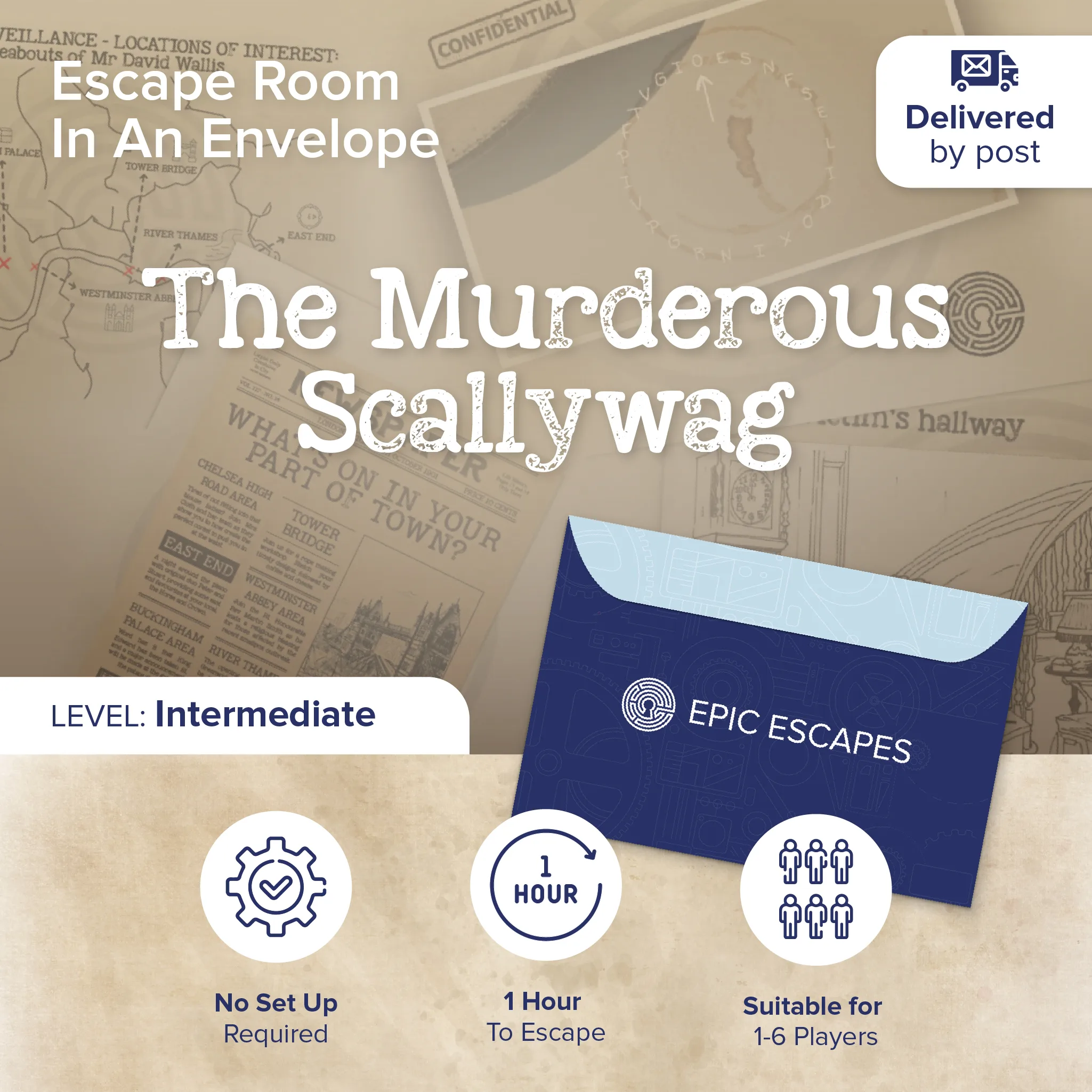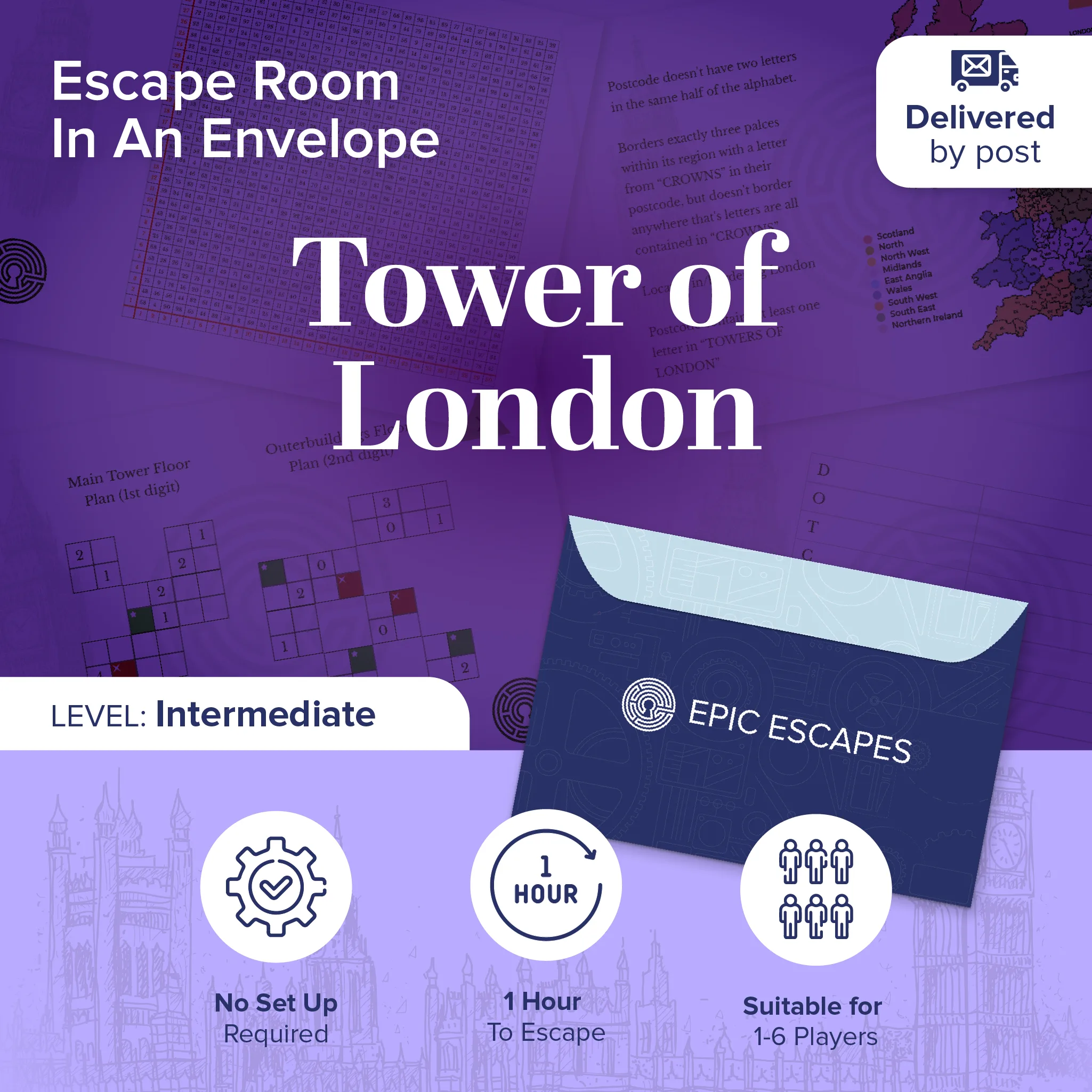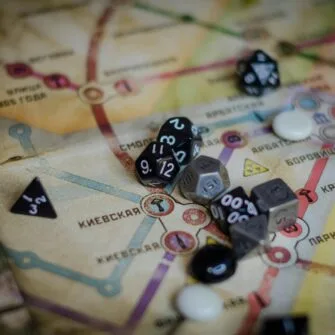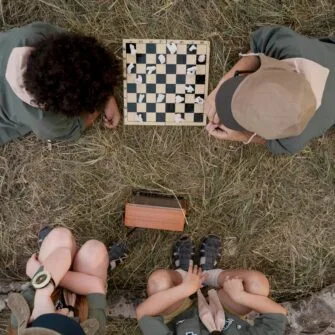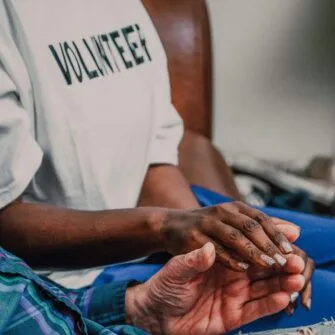Ever felt the adrenaline rush of the countdown in an escape room? The clock ticks, the puzzles beckon, and every second brings you closer to victory—or defeat. For escape room enthusiasts and keen gamers, this thrill is the heartbeat of adventure. But what if you could elevate your game to the next level, mastering strategies that guarantee your success every time?
Imagine this: you and your friends are locked in a room themed as a haunted mansion. The lights flicker, eerie music plays, and the pressure mounts as you scramble to solve cryptic clues and hidden puzzles. Your heart races, your mind sharpens, and for 60 electrifying minutes, you are the hero of your own story. This guide is here to make sure you conquer these challenges with confidence and finesse.
Welcome to our “Strategies to Conquer Any Escape Room.” Whether you’re a seasoned player or a newbie eager to dive into the world of escape rooms, these tips will equip you with the knowledge and skills to outsmart any puzzle thrown your way. Ready to become an escape room legend? Let’s dive in!
Table of Contents
Understanding the Basics
Before diving into advanced strategies, it’s crucial to understand the foundation upon which every escape room is built. Think of it as learning the rules of a game before you master the tricks and tactics. The basics are your starting point, the canvas on which you’ll paint your masterpiece of escape.
The Anatomy of an Escape Room
Every escape room is a meticulously designed puzzle box, blending elements of theatre, mystery, and problem-solving. Typically, you’ll encounter a variety of puzzles, each testing different skills—from logical reasoning to physical dexterity. There are the classic logic puzzles, where you decode ciphers or piece together fragmented information, and the physical challenges, where you might have to maneuver through obstacles or find hidden compartments.
Imagine walking into a Victorian-era study, the smell of old books and leather-bound tomes filling the air. A grandfather clock ticks ominously in the corner, and you find a letter opener lying next to a stack of cryptic letters. These aren’t just props—they’re pieces of a grand puzzle, waiting for you to unravel their secrets.
The Power of Teamwork and Communication
In the world of escape rooms, no man is an island. Teamwork isn’t just beneficial; it’s essential. Think of your team as an orchestra, each member playing a unique instrument. When everyone is in sync, the result is a harmonious symphony of problem-solving prowess.
Effective communication is your conductor. It ensures that clues are shared, ideas are voiced, and tasks are distributed according to each member’s strengths. Picture this: one teammate discovers a strange key, another finds a locked drawer, and another pieces together a clue suggesting the key’s use. It’s only through clear, concise communication that these pieces come together to unlock the next step.
Diverse Themes and Their Unique Challenges
Escape rooms come in a dazzling array of themes, each offering its own set of challenges. From the chilling confines of a mad scientist’s lab to the sunken treasures of a pirate ship, the setting influences the types of puzzles and the overall atmosphere.
For instance, in a pirate-themed room, you might find yourself deciphering ancient maps, solving riddles to locate hidden treasure, or piecing together fragments of a long-lost captain’s journal. Each theme immerses you in a new world, demanding adaptability and a keen sense of observation.
As you prepare to embark on your next escape room adventure, remember this: understanding the basics isn’t just about knowing what to expect—it’s about laying a strong foundation for the strategies that will lead you to victory. The room may be a puzzle, but with these basics, you hold the key to unlocking its secrets.
Stay tuned as we delve into the pre-game preparations that will set you on the path to becoming an escape room master.
Pre-Game Preparation
Before stepping into the thrilling world of an escape room, a little preparation can go a long way. Like a seasoned athlete warming up before a game, your pre-game rituals can set the tone for success.
Research the Escape Room Theme and Difficulty
Knowledge is power. Spend some time researching the escape room you’re about to tackle. Look up the theme, read reviews, and, if possible, gauge the difficulty level. This isn’t about spoiling the surprises; it’s about understanding what you’re getting into. Think of it as studying the map before venturing into uncharted territory.
For example, if you’re entering a room based on ancient Egyptian tombs, familiarize yourself with common symbols and historical references. This background knowledge can give you a head start when you’re deciphering hieroglyphics or solving puzzles based on ancient myths.
Choose Your Team Wisely
Your team is your greatest asset. A well-balanced team can make the difference between a triumphant escape and a frustrating failure. When assembling your group, consider the unique strengths each person brings to the table. Is someone great at solving logical puzzles? Does another person excel in physical challenges?
Diversity in skills can cover all bases. Picture your team as a band of heroes in a fantasy novel, each with distinct abilities that, when combined, create an unstoppable force. The analytical thinker, the keen observer, the quick problem-solver—together, they form the ultimate escape room squad.
Rest and Hydrate Before the Game
It might sound simple, but being well-rested and hydrated can significantly impact your performance. Think of your brain as a high-performance engine; it needs the right fuel to operate at its best. A tired mind is prone to mistakes, and dehydration can sap your concentration and energy.
Before your escape room adventure, ensure you’ve had a good night’s sleep and are well-hydrated. Eat a light meal to keep your energy levels stable. You wouldn’t enter a marathon without proper preparation, so treat your escape room experience with the same respect.
Arrive Early and Listen to the Briefing
Arriving early allows you to get acclimated to the environment and calm any pre-game nerves. Use this time to discuss strategies with your team and ensure everyone is on the same page.
Pay close attention during the game master’s briefing. This is where crucial information is often shared, such as rules, hints about the room’s layout, and specific instructions. Missing a key detail here could set you back once the clock starts ticking.
Effective In-Game Strategies
Once the door closes and the countdown begins, it’s game time. Effective in-game strategies can make all the difference, turning chaos into coordination and confusion into clarity.
Assign Roles Based on Team Members’ Strengths
In the heat of the game, efficiency is key. Assigning roles based on each member’s strengths can streamline your efforts and prevent valuable time from slipping away. For instance, designate a communicator to relay information, a scribe to keep track of clues, and solvers for specific types of puzzles.
Imagine your team as a well-oiled machine, each part functioning seamlessly to achieve a common goal. The communicator ensures everyone is informed, the scribe documents progress, and the solvers tackle puzzles with laser-focused precision. This division of labour can significantly enhance your team’s overall performance.
Keep Track of Used Clues and Solved Puzzles
As you navigate through the room, it’s easy to lose track of what’s been solved and what hasn’t. Keeping a record of used clues and solved puzzles can prevent unnecessary repetition and confusion. Use a whiteboard or a notebook to jot down your progress.
Picture yourself in a library maze, where each solved puzzle is a breadcrumb trail leading to the next clue. Keeping an organized record ensures you don’t stray from the path and helps you piece together the bigger picture more effectively.
Communicate Findings Immediately with the Team
Communication is the lifeblood of successful escape room experiences. The moment you discover a clue or solve a puzzle, share it with your team. This immediate dissemination of information ensures that everyone is on the same page and can contribute their insights.
Think of it like a hive mind, where the collective knowledge and quick sharing of information lead to swift and efficient problem-solving. A clue found by one person could spark an idea in another, leading to a breakthrough that might have otherwise been missed.
Stay Calm and Manage Time Efficiently
Pressure can cloud judgment, and panic can lead to mistakes. Staying calm, even as the clock ticks down, is crucial. Take deep breaths, focus on the task at hand, and trust in your team’s abilities.
Effective time management is also essential. Allocate time limits for each puzzle, and if you’re stuck, don’t hesitate to move on and return later. It’s like navigating a labyrinth—sometimes stepping back to see the bigger picture can reveal the way forward.
Use Hints Wisely
Most escape rooms offer hints, but they often come with a penalty. Use them strategically. If you’re genuinely stuck and time is running out, a well-timed hint can be the difference between success and failure.
Imagine being in a dense forest with a guide offering to show you the way out. You wouldn’t call on the guide for every small obstacle, but knowing when to seek help can save you from wandering aimlessly and wasting precious time.
By applying these in-game strategies, you’ll not only enhance your chances of escaping but also enrich the overall experience. With preparation and practice, you’ll become adept at navigating the intricate world of escape rooms, turning every challenge into a victory.
Stay tuned as we explore common pitfalls and how to avoid them in our next section!
Common Pitfalls and How to Avoid Them
Even the most seasoned escape room enthusiasts can fall prey to common pitfalls. Recognizing and avoiding these mistakes can make the difference between a victorious escape and a frustrating failure.
Overthinking Simple Puzzles
One of the most frequent mistakes is overthinking. Sometimes, the simplest solution is the correct one. In the heat of the moment, it’s easy to search for complexity where none exists.
Imagine you’re in a room filled with intricate mechanisms and hidden compartments. You find a simple padlock with a three-digit code. Instead of searching for hidden messages and complex formulas, consider if the answer might be as straightforward as numbers you’ve already encountered, like the room number or a date prominently displayed.
Ignoring the Game Master’s Hints
The game master is your silent ally. Their hints are designed to guide you without giving too much away. Ignoring their subtle nudges can lead you down a path of unnecessary frustration.
Picture this: you’re struggling with a puzzle and the game master mentions, “Have you checked everything thoroughly?” It’s easy to brush off these comments as casual observations, but they’re often strategically timed to steer you back on course. Pay attention to these cues—they can be the gentle push you need.
Focusing Too Much on One Puzzle
Time is of the essence in escape rooms. Fixating on one puzzle for too long can stall your progress and eat away precious minutes. If a puzzle is proving too challenging, it’s often best to move on and return to it later with fresh eyes.
Consider it like playing a video game: if you’re stuck on one level, sometimes the best approach is to explore other areas or objectives, gather more tools or information, and then come back. This can provide new perspectives and insights that make the initially difficult puzzle more approachable.
Not Keeping an Organized Workspace
A cluttered workspace can lead to confusion and missed clues. As you solve puzzles and gather items, keeping your area organized ensures that important pieces don’t get lost in the shuffle.
Imagine your team is on a treasure hunt, each finding different pieces of a map. If these pieces are scattered and disorganized, it’s much harder to piece together the final route. Keeping an organized and tidy workspace helps everyone stay on track and ensures that no clue goes unnoticed.
Overlooking Small Details
Escape rooms thrive on details. It’s often the smallest, seemingly insignificant details that hold the key to unlocking major breakthroughs. Train your eyes to notice the minute elements that might be easy to overlook.
Think of it as being a detective, where every detail, no matter how small, could be the crucial piece of evidence that cracks the case. That tiny notch on a book, the unusual pattern on a wall, or the slight discrepancy in a painting could all be vital clues.
By avoiding these common pitfalls, you can streamline your approach, maintain focus, and enhance your overall escape room experience. Now, let’s move on to how you can reflect on your experience after the game to continually improve your skills.
Post-Game Reflection
Once the door swings open and the timer stops, it’s time to reflect on your experience. Post-game reflection is a vital step in honing your skills and ensuring that every escape room adventure is a learning opportunity.
Discuss What Worked and What Didn’t
Gather your team and have an honest discussion about what strategies worked and which ones fell flat. This debriefing session is crucial for identifying strengths and areas for improvement.
Imagine a sports team reviewing their game footage. By analyzing each play, they can see what led to success and what needs adjustment. Similarly, discussing your escape room performance helps pinpoint effective tactics and those that need refining.
Learn from Mistakes
Mistakes are inevitable, but they’re also valuable learning tools. Instead of dwelling on what went wrong, focus on how you can avoid similar errors in the future.
Think of each mistake as a stepping stone, guiding you toward better strategies. Did you miss a crucial clue because it was hidden in plain sight? Next time, remind yourself to take a step back and survey the room more thoroughly. Every error holds a lesson, making you a more astute player.
Celebrate Successes
Don’t forget to celebrate your victories, no matter how small. Each solved puzzle, each successful collaboration, is a testament to your skills and teamwork.
Consider the feeling of crossing a finish line in a race. Even if you didn’t place first, the mere act of finishing is worth celebrating. Acknowledge the moments where your team shined, reinforcing positive behaviors and strategies.
Seek Feedback from the Game Master
Game masters are not only there to guide you during the game but also to provide valuable insights afterward. Ask for their feedback on your performance. They can offer unique perspectives and tips based on their extensive experience.
Think of the game master as a coach. Their outside view can highlight things you might have missed and provide advice that you can carry into future games. Their feedback is a treasure trove of information that can help you continually improve.
Plan for the Next Adventure
Finally, use what you’ve learned to plan your next escape room adventure. Whether it’s adjusting team roles, refining your communication, or simply trying a different type of room, each experience prepares you for the next.
Imagine it as a continuous journey, where each escape room is a chapter in your story. With each completed room, you gather more knowledge, more skills, and more memories, ready to tackle the next challenge with greater confidence and expertise.
By reflecting on your experiences, celebrating your successes, and learning from your mistakes, you turn each escape room adventure into a stepping stone towards mastery.
Conclusion
You’ve journeyed through the intricate maze of escape room strategies, armed now with the knowledge to conquer any challenge these thrilling adventures throw at you. From understanding the basic building blocks of escape rooms to fine-tuning your pre-game preparation and in-game tactics, and finally, reflecting on your experiences post-game, you are well on your way to becoming an escape room master.
Remember, each escape room is a unique puzzle, a new story waiting to be unraveled. Approach each one with curiosity, teamwork, and a keen eye for detail. Stay adaptable, communicate openly with your team, and don’t be afraid to think outside the box—or in this case, the room.
Think of every escape room as a new chapter in your journey, each one building on the skills and experiences of the last. Whether you’re deciphering ancient scripts in a lost temple, outwitting a mad scientist, or hunting for pirate treasure, these strategies will guide you to success.
Ready to put these strategies to the test? Gather your team, choose your next escape room adventure, and dive in with confidence. The thrill of the escape, the joy of the puzzle, and the camaraderie of your team await. So go forth, conquer, and let each escape room challenge sharpen your skills and ignite your passion.
Ready, set, escape!







